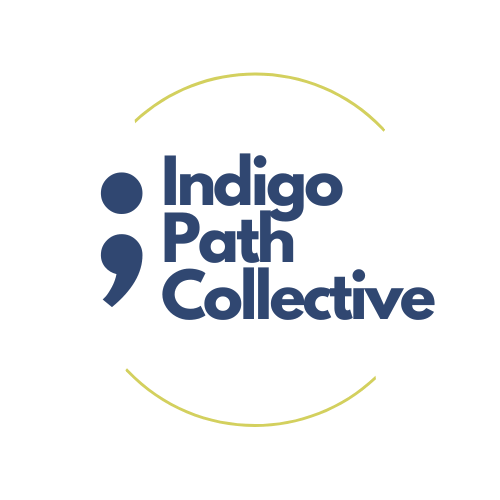When Anger Speaks, Boundaries Answer
Everyone has boundaries. The question is whether you know what yours are. Most people start to realize their boundaries when others cross them, but establishing boundaries in the middle of an argument is ineffective. We must talk about our boundaries with ourselves and others before we get to that point, so our boundaries can be used to structure healthy, effective relationships.
At Indigo Path Collective, we define boundaries in three ways:
What is okay and not okay for me in the context of my relationship with you.
The distance I need to be from you to safely love you.
What is okay and not okay in the context of my relationship with myself.
In the context of these three ways to understand boundaries, the telltale sign that your boundaries have been crossed is anger. Anger can also show up when expectations are broken or when something feels unfair. Anger is your emotional system flagging a problem before your words catch up. Anger is not bad. It is incredibly useful information. We can lean into anger to understand what boundaries were crossed, how and when, and what we need to change to ensure we are safe and protected.
When boundaries are hard to name, values can help. Values are described as what is most important to you. So when anger shows up, you can ask yourself what was important that was dismissed, invalidated, or otherwise treated unfairly. Your values often point directly to the crossed boundary.
Healthy boundaries are not just ideas, either. They require action, including establishing positive and negative consequences for yourself and others who uphold or cross your boundaries. If someone crosses a boundary, you need to know what your next step is and be ready to communicate it clearly. Boundaries are clearest when they are communicated ahead of time, not after things have gone off the rails.
Boundaries are not about shutting people out. They help you stay safely present and connected in the moment. They make space for care and closeness that is mutual, not one-sided.
Want support exploring how to set boundaries and listen to what your anger is trying to tell you? Schedule a free 15-minute counseling consultation at Indigo Path Collective to move toward clearer, healthier relationships.

